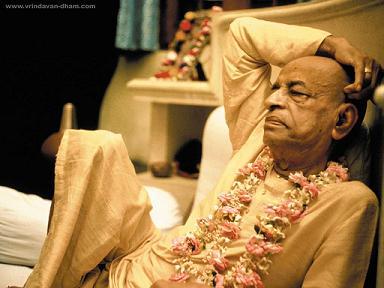As we enter the 7th chapter of the Bhagavad-Gita, the discussion of the self (
tvam, you), the unchanging conscious observer of the changing temporary body, turns to the discussion of that (
tat) , which being completely absorbed in and what pervades ones purpose in life, will bring one to the level of full understanding (
jnasyasi) of God, Krishna.
This is a pivot point, a place where those whose meditation is strictly on the self will stay behind, while those who can look beyond the glare of the ego, will move forward. The Upanisads declare
tat tvam asi, "You are that". A statement that directs the focus of meditation on the self, the
atma. But here, Krishna, is taking hold of the discussion, and without prompt, is declaring
tat tvam asi, "You are His". You are connected to God with love and devotion. Here Krishna steers the discussion to that which is dear to his heart,
bhakti, love.
The 7th chapter begins the middle six of 18 chapters of the Bhagavad-Gita or the heart of the book. The heart is where love resides. The heart is sensitive and vulnerable, therefore we protect our heart and only let in those trusted souls who we love and love us in return. We guard our heart like a treasure, behind doors closed to the outside world. Similarly, the heart of the Gita is sandwiched in between the first six and the last six chapters.
Here in center of the book, Krishna reveals his heart to Arjuna and lovingly talks about that person who he loves. Imagine you were to talk to a friend about someone you love. You may start by describing pleasing characteristics and behaviors of that person which are endearing to you. Likewise, Krishna takes six chapters to describe those who he loves, from the first line of the 7th chapter where Krishna says
mad-asrayah, "that person is surrendered to me" all the way up to the last line of the last verse of the 12th chapter where he says bhaktas te 'tiva
me priyah, "the devotees,
bhaktas, are extremely dear to me".



